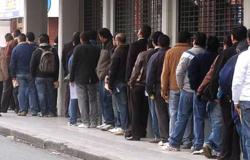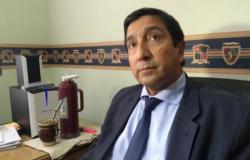Given the proximity of the winter season and the increased circulation of respiratory viruses that have generated an increase in cases in Córdoba, the municipal health system called for intensifying prevention measures.
In the last month there has been an increase in consultations for respiratory symptoms, so the Municipality of Córdoba indicated that the Ministry of Health, together with the Ministry of Health of the province, continues to strengthen the strategies to respond to the problem. increase in seasonal diseases.
Acute lower respiratory infections are those that compromise part of the respiratory system and are caused by viruses or bacteria capable of causing clinical symptoms of varying complexity such as influenza, bronchiolitis and pneumonia, to more serious conditions.
Precautionary measures:
- Wash your hands periodically with soap or alcohol gel, especially after touching handles, money, office objects, other children’s toys, changing diapers, etc.
- When coughing or sneezing, cover your mouth and nose with your elbow.
- Wipe your nose with disposable tissues.
- Avoid cigarette smoke and braziers near children.
- Ventilate the environments.
- Keep vaccination schedules up to date.
- Do not self-medicate.
Symptoms in children:
The signs to detect if a child has a possible respiratory infection and must urgently go to a health center are:
- Rapid breathing, with wheezing or snoring.
- His chest sinks when he breathes.
- He has a persistent fever of more than 38°.
- He has snot.
- Loss of appetite.
- Cannot drink or breastfeed.
- He/she is down and looks sick.
In these cases, you should go to a nearest Health Center without self-medicating, since the consumption of over-the-counter remedies can cause poisoning and hide the symptoms of the disease, making a correct diagnosis difficult and worsening the clinical picture.
Rest at home should be maintained while symptoms continue.
Among preventive measures, one of the most important is vaccination. In this sense, the Ministry of Health has 110 health units with vaccinations.
Itinerant vaccination operations were also added in different parts of the city, carrying out more than 10 weekly actions. They visit CPC, plazas, Neighborhood and Retirement Centers, nursing homes, neighborhood and sports institutions.
Who can receive the flu vaccine?
The National Vaccination Schedule includes the flu vaccine for:
● Health personnel
● People from 9 to 64 years old (inclusive) with risk factors
● People from 6 to 24 months and from 2 to 8 years (inclusive) with risk factors
● Pregnant people
● Postpartum people
The Ministry of Health, through the electronic prescription program, guarantees priority access to people with exclusive public coverage to pharmacological treatments in an efficient and safe manner, with a wide range of first-line medications to cover treatments for different pathologies. among which there are also specific treatments for respiratory diseases.
Upcoming itinerant vaccination operations:
Monday June 10 from 9 a.m. to 1 p.m., Catholic University
Monday, June 10, from 9 a.m. to 1 p.m. at the Professor Oscar Raúl Malvasio School (Public Street without number, Ciudad Obispo Angelelli I).
Tuesday, June 11, from 9 a.m. to 1 p.m., Quebrada de las Rosas Neighborhood Center 9 de Julio 5555
Friday, June 14 at the CPC Arguello, from 5 to 8 p.m.
Friday, June 14 from 9 a.m. to 1 p.m. in Plaza San Martin.
Friday, June 28 at the CPC Rancagua from 5 to 8 p.m.






